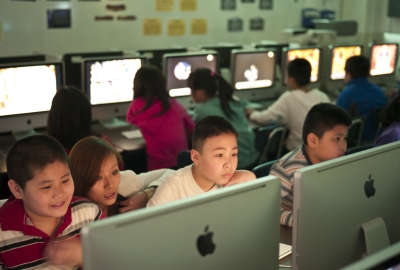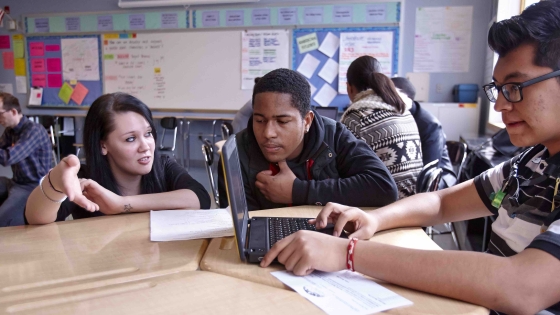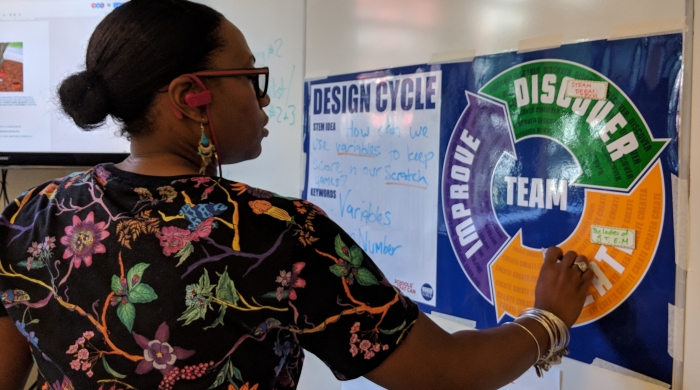
About the Maker Partnership
In recent years, there has been a surge of activity aimed at bringing computer science (CS) learning to all students, particularly those who have been historically underrepresented in the CS field. The Maker Partnership is a new collaboration between the Research Alliance, Schools That Can (STC) and MakerState (MS) that is designed to build knowledge about how to help elementary teachers integrate computer science and computational thinking into their regular sciences classes using maker pedagogy.
The maker approach is based on the engineering design process, with students brainstorming and developing solutions, using technology to create prototypes, and then testing and refining those prototypes together. In the fall of 2018, the Maker Partnership began providing curriculum, extensive training and professional development to third- through fifth-grade teachers in eight New York City elementary schools.
About Our Study
In collaboration with Schools That Can and MakerState, the Research Alliance is evaluating the implementation of Maker Partnership curriculum and professional development, including the extent to which teachers and schools modify the model to meet their specific contexts and needs. We will also examine outcomes for teachers participating in the program—such as CS content knowledge and instructional practice—and the outcomes of students in participating classrooms, including how the curriculum influences student engagement, interest, and learning. Our study will focus particularly on high-poverty elementary schools that serve large numbers of Black and Latino students—students who have historically been underrepresented in computer science and STEM education.
We hope that our evaluation will generate valuable knowledge about how to prepare elementary grade teachers to successfully incorporate computer science and computational thinking into their teaching.
Read our paper in the FabLearn 2019 Conference Proceedings:
"Making" Science Relevant for the 21st Century: Early Lessons from a Research-Practice Partnership
This study is funded through the STEM + Computing (STEM+C) program of the National Science Foundation.


